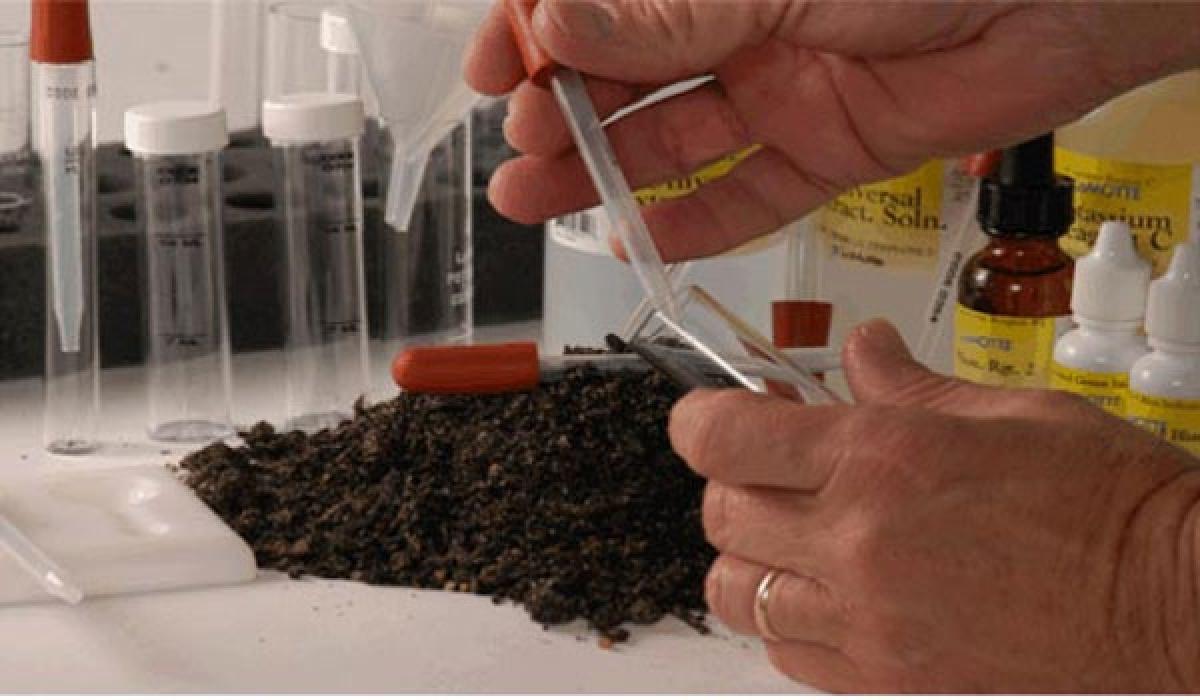Live
- Former Speaker Tammineni’s clout on the wane
- Attack on media: Take action against Mohan Babu, demand journalists
- More sports equipment promised at Central Park
- Mohan Babu’s attack on journalists inhumane act
- West Quay-6 of VPA to get revamped
- Rajaiah demands govt to introduce SC categorisation Bill in Assembly
- Make all arrangements for smooth conduct of Group-2 exams
- CP congratulates chess champs
- Stage set for children’s science exhibition
- ‘Generation Green’ initiative to drive e-waste awareness
Just In
Soil in Prakasam dist is deficit in organic carbon, zinc: Survey


The tests conducted by the agriculture department for three years in Prakasam district revealed that there is a large deficiency of minerals and nutrients in the soil. The soil is identified as deficit organic carbon for 62 per cent and zinc in 70 per cent, along with other nutrients, due to the continuous yielding of the same crop for years.
Ongole: The tests conducted by the agriculture department for three years in Prakasam district revealed that there is a large deficiency of minerals and nutrients in the soil. The soil is identified as deficit organic carbon for 62 per cent and zinc in 70 per cent, along with other nutrients, due to the continuous yielding of the same crop for years.
The agriculture department is conducting soil tests from 2015-16 and has completed the distribution of 4.5 lakh cards in the district for the period of 2016-17. The soil cards help the farmer and the agriculture officer to understand the nutrient levels in the soil and take a decision on which nutrients and minerals should be used and at the limited quantity than spending more money on the unnecessary chemicals.
The agriculture officials are encouraging the farmers to increase the organic carbon in natural methods than using chemicals. J Murali Krishna, joint director of agriculture department, said, “Conducting soil tests is a compulsory activity under the guidelines of Smart Village programme. We are advising the farmers to use green manure and dung of animals to increase the organic carbon levels in the farm.
On the other side, we are also distributing zinc, magnesium, boron, iron, and gypsum on 50 per cent subsidy for the required farmers based on their levels in his farm. We are also providing diancha, pillipesara, and sunn hemp on 75 per cent subsidy to the farmers to use them as green manure.”
In six lakh hectares of the farm land in Prakasam district, more than four lakh hectares are dependent on rain. The agriculture officials are advising the farmers to depend on the natural way of increasing organic carbon. Murali Krishna said, “We are now trying to increase the green manure cultivation in the district from 30,000 hectares to 50,000 hectares in the district in the pre-kharif season.
The majority of the farmers in the district cultivate bengal gram in rabi season and leave the farm vacant in kharif. We are asking them to cultivate millets in kharif as a mid crop. Also, we are encouraging the farmers to cultivate black gram, green gram, and sesame between June and August. These crops can be utilised as green manure to increase the organic carbon in the soil and helps the main crop cultivated later.”
By Naresh Nandam

© 2024 Hyderabad Media House Limited/The Hans India. All rights reserved. Powered by hocalwire.com






